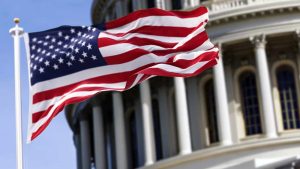I’ve just bought this FTSE share…


Of all the FTSE shares available, I recently took a position in Begbies Traynor (LSE:BEG), the business recovery and corporate finance group. It mainly employs insolvency practitioners, lawyers and accountants to help provide advice to companies usually experiencing financial distress.
As someone who generally looks for the positive things in life, my most recent investment might be a little surprising. After all, Begbies Traynor is more likely to do well when other UK businesses are struggling. Surely an optimistic person like me should be enthusiastic about the country’s prospects?
Unfortunately, that’s not the case. In recent weeks, I’ve become increasingly worried about the state of the nation’s finances and the implications for the wider economy. I’m now more optimistic about the prospects for Begbies Traynor than I am for the country as a whole.
Doom and gloom
Each quarter, the group publishes its ‘Red Flag Alert Report’. The latest version reveals there are 45,416 UK businesses in “critical” financial distress. In some respects, the absolute number doesn’t really matter. It’s the direction of travel that’s important. Although 2.4% lower than for the previous quarter, the number’s 13% higher than a year ago.
The report concludes: “Optimism remains in short supply for UK businesses”. Alongside stubbornly high inflation, an economy that shrank during the previous two quarters and the Office for Budget Responsibility warning that the UK fiscal outlook “remains daunting” it’s hard to be positive.
Against this backdrop, my investment in Begbies Traynor can be viewed as a hedge against a poorly performing UK economy.
Looking on the bright side
Of course, things might pick up soon. The government’s pulling as many ‘growth levers’ as it can and the Bank of England’s widely expected to resume cutting interest rates shortly.
But even if the country does start growing again, there’s always a lag between the ‘real’ economy and the headline numbers. On this basis, Begbies Traynor should continue to do well for a while longer. That’s because in addition to the 45,416 “critical” businesses, there are another 579,276 experiencing “significant” distress.
Pros and cons
This gloomy picture has helped improve all of the company’s key financial metrics. During the year ended 30 April (FY25), year-on-year revenue increased by 12.4% to £153.7m, profit before tax almost doubled and free cash flow went up by 56%. The group also moved from a net debt to a net cash position at the end of the year.
Adjusted diluted earnings per share increased from 9.9p to 10.5p. This means the stock’s currently (16 July) trading on a very reasonable 11.7 times historic earnings. The current yield of 3.5% isn’t bad either.
But the group faces some challenges. Its offering to clients is only as good as the staff it employs. The recruitment and retention of key personnel is essential for its continued success. And the nature of its business means it has a high fixed cost basis (mainly salaries and property) which cannot be quickly reduced during difficult times.
It also operates in a very competitive market place.
However, on balance, I think the group’s well positioned to benefit from the challenging times in which we live. That’s why I recently added the stock to my portfolio. Other investors could consider doing the same.
The post I’ve just bought this FTSE share… appeared first on The Motley Fool UK.
More reading
- Just over £5 now, easyJet’s share price looks cheap to me anywhere under £13.84
- 36% under ‘fair value’ and forecast annual earnings growth of 6%, should investors consider this FTSE 250 stock?
- 3 UK shares that have recently become takeover targets
- These 4 FTSE 100 stocks are currently yielding more than 8%!
- 3 reasons I prefer HSBC over Lloyds shares
James Beard has no position in any of the shares mentioned. The Motley Fool UK has recommended Begbies Traynor Group Plc. Views expressed on the companies mentioned in this article are those of the writer and therefore may differ from the official recommendations we make in our subscription services such as Share Advisor, Hidden Winners and Pro. Here at The Motley Fool we believe that considering a diverse range of insights makes us better investors.





